Research Article
Book Review
Aim & Scope
Medya ve Din Araştırmaları Dergisi (MEDIAD) - Journal of Media and Religion Studies is an international, peer-reviewed, open-access scientific journal published twice a year, in June and December, since June 2018.
The journal is committed to concretizing initiatives related to the intersection of media and religion in our country, thereby delineating these endeavors as a field of inquiry. Its mission encompasses making these initiatives a distinctive area for questioning, laying the groundwork for new methodological designs within the field, opening up the international academic knowledge in the domain to national academic interest, leading academic change regarding experience and knowledge, and reflecting original local, regional, and global perspectives within the realm.
Author Guidelines
1. In order for the submitted articles to be considered for evaluation, it is required that they have not been published elsewhere before.
2. The publishing languages of the journal are Turkish and English.
3. The submitted articles are first reviewed by editors. If an article meets the necessary requirements in terms of content and style, then it will be assessed in terms of appropriateness for publication.
4. In the refereeing process, the double-blind refereeing system is applied and all the articles are evaluated by two referees. If deemed necessary, it is sent to a third referee. The publication of a journal is subject to the approval of the referees and the authors are obliged to make the necessary corrections required by the referees.
5. While preparing the articles, national and international ethic rules should be observed.
6. When submitting an article to the Journal of Media and Religion Studies, it is obligatory to send a file containing
a) Author identification information,
b) Ethics committee report (depending on the nature of the study),
c) Similarity report,
d) Contribution rate and conflict of interest declaration form
7. The studies submitted to the journal are evaluated within the framework of the similarity report declared at the application stage. Articles that do not comply with research and publication ethics or have a risk of plagiarism will not be evaluated.. In this framework, if the similarity rate detected by the screening programs is above 15%, the relevant study cannot be published even if it receives the approval of the referee. If the study was published without noticing the situation, access to the relevant study is blocked and the study is removed from the publication list and the full issue when the situation is noticed. Journal management accepts the results of self-employed plagiarism/similarity programs as a corporate standard, not as a violation of ethics. For detailed information about the plagiarism policy, you can visit the Plagiarism Policy page.
8. The studies should include the following parts:
o Title: A clear and understandable title in bold and capital letters that reflects the content and does not exceed 15 words, must be put at the very beginning of the study.
o Abstract: Under the title page, an abstract that is consistent with the general framework of the study between 150-200 words should be added.
o Key Words: Under the abstract, maximum 5 key words should be added.
o Turkish Title: After the key words, the Turkish title of the study should be added (It is not expected from authors whose native language is not Turkish).
o Abstract in Turkish: Under the title in Turkish, a Turkish abstract of at least 150-200 words should be added (It is not expected from authors whose native language is not Turkish).
o Turkish Key Words: Under the abstract, maximum 5 key words should be added (It is not expected from authors whose native language is not Turkish).
o Introduction: The study should start with the Introduction section. This section should include the problem, the purpose, the method, limitations etc.
o Text: The part of the text that forms the main body of the study, headings and subheadings including the method should be numbered according to the example given below, headings should be written in bold and the first letters of their words should be capitalized.
o Turkish Extended Summary: It should be in the range of 1000-1250 words, including the main headings in the study. If the study is written in English, the Turkish abstract should be included here. Extended Turkish abstracts are not expected from authors whose native language is not Turkish.
Ethical Principles and Publication Policy
Our journal adheres to the Principles of Transparency and Best Practice in Scholarly Publishing published by esteemed organizations, including the Committee on Publication Ethics (COPE), the Directory of Open Access Journals (DOAJ), the Open Access Scholarly Publishers Association (OASPA), and the World Association of Medical Editors (WAME). You can find the details of these principles on the following website:
https://publicationethics.org/resources/guidelines-new/principles-transparency-and-best-practice-scholarly-publishing
The authors check and confirm whether the work complies with the ethical standards, publication principles and writing rules adopted by the journal before it is sent to the journal.
It is the responsibility of the author(s) to prepare the work in accordance with the research and publication principles.
By submitting the work, the author undertakes that the work has been prepared in accordance with the Law on Intellectual and Artistic Works No. 5846, the Council of Higher Education (YÖK) Scientific Research and Publication Ethics Directive, and the research and publication ethics standards announced by COPE.
The reviewer completes the evaluation of the article, taking into account the principles in the link below explained by COPE, and submits it to the editorial board within the time allowed.
https://publicationethics.org/resources/guidelines/cope-ethical-guidelines-peer-reviewers
a) Impartiality: The editor conducts the evaluation process of the works regardless of the religion, gender, nationality and political view of the author.
b) Confidentiality: The principle of blind refereeing is protected during the publication process. The measures are taken to prevent the occurrence of a conflict of interest between the author and the referee.
c) Fairness: Considers the COPE guidelines in terms of compliance of the refereeing process with ethical standards.
https://publicationethics.org/files/What_To_Do_If_Suspect_Peer_Review_Manipulation.pdf
d) Cooperation and coordination: Necessary cooperation and coordination is provided to complete the evaluation process of the works within the stipulated time.
e) Information sharing: In sharing information about the journal's publication process and article evaluation processes with other members of the Board, the principles in the link determined by COPE are observed.
https://publicationethics.org/files/Sharing%20_of_Information_Among_EiCs_guidelines_web_version_0.pdf
f) Ethical Issues: Regarding a work sent to the journal for publication or published in previous issues of the journal,
In case of duplicate publication, slicing, plagiarism, fabricated data, conflict of interest, and suspicion of unfair authorship, the standards in the link specified by COPE are respected.
In addition, attention is paid to the issues explained in the link on unfair authorship in terms of duplicate publication and slicing published by COPE.
https://publicationethics.org/resources/guidelines/ethics-toolkit-editors
g) Editor as author in own journal: The publication of articles by journal editors, members of the editorial or advisory boards, in their own journals or the journals they are affiliated with, is a topic of discussion both within the field of journal publishing organizations (e.g., COPE) and the relevant academic literature (Helgesson, G., Radun, I., Radun, J., & Nilsonne, G. (2022). Editors publishing in their own journals: A systematic review of prevalence and a discussion of normative aspects. Learned Publishing, 35(2), 229-240. https://doi.org/10.1002/leap.1449).
• An editor cannot be designated as the editor for their own article in the issue they submit. The work is assigned to other editors from the very beginning, and the entire process is managed by these other editors. They cannot intervene in any stage of the process, such as the selection of reviewers, etc.
• Members of the editorial and advisory boards cannot participate in any stage of the process related to an article they submit to the journal they are affiliated with.
• To ensure transparency and adherence to ethical rules regarding such publications, a declaration of conflict of interest is included on the final page of the article, specifying how the process was conducted.
The journal adheres to the highest standards in research ethics and follows the principles of international research ethics as defined below. The authors are responsible for the compliance of the manuscripts with the ethical rules.
• Principles of integrity, quality, and transparency should be sustained in designing the research, reviewing the design, and conducting the research.
• The research team and participants should be fully informed about the aim, methods, possible uses, and requirements of the research and risks of participation in research.
• The confidentiality of the information provided by the research participants and the confidentiality of the respondents should be ensured. The research should be designed to protect the autonomy and dignity of the participants.
• Research participants should participate in the research voluntarily, not under any coercion.
• Any possible harm to participants must be avoided. The research should be planned in such a way that the participants are not at risk.
• The independence of research must be clear; and any conflict of interest or must be disclosed.
• In experimental studies with human subjects, written informed consent of the participants who decide to participate in the research must be obtained. In the case of children and those under wardship or with confirmed insanity, a legal custodian’s assent must be obtained.
• If the study is to be carried out in any institution or organization, approval must be obtained from this institution or organization.
• In studies with a human subject, it must be noted in the method section of the manuscript that the “informed consent of the participants and “ethics committee approval” from the institution where the study has been conducted have been obtained. Ethics committee approval should be uploaded to the journal system for related articles.
a) Studies Requiring Ethical Approval
Descriptions related to studies requiring ethical approval are determined within the framework of rules set forth by TRDİZİN.
Click here for relevant guidelines and detailed explanations.
In studies with ethical board approval, the methodology section explicitly states the study's ethical approval under a separate heading, providing detailed information. Likewise, necessary information is conveyed at the end of the text."
If you encounterany unethical behavior or content in our journal, please report it directly to ethic@mediadjournal.org
b) Allegations of Misconduct
Our journal is committed to maintaining the highest standards of ethical conduct in scholarly publishing. In the event of any allegations of misconduct, whether brought to the attention of the journal or the publisher, we have established a clearly outlined process to address such concerns. We take allegations of misconduct seriously, both in the pre-publication and post-publication phases. Our policies encompass the handling of allegations from whistleblowers, ensuring a comprehensive and fair approach to investigating and addressing any such concerns.
During the relevant processes, we adhere to the standards and guidelines set forth by the Committee on Publication Ethics (COPE). For detailed information on handling allegations of misconduct, please refer to the COPE standards and guidelines at https://publicationethics.org/misconduct
5. PLAGIARISM POLICY
The studies submitted to the journal are evaluated within the framework of the similarity report declared at the application stage. Articles that do not comply with research and publication ethics or that have a risk of plagiarism are not evaluated. In this framework, if the similarity rate detected by the screening programs is above 15%, the relevant study cannot be published even if it receives the approval of the referee. If the study was published without noticing the situation, access to the relevant study is blocked and the study is removed from the publication list and the full issue when the situation is noticed. Journal management accepts the results of self-employed plagiarism/similarity programs as a corporate standard, not as a violation of ethics. For detailed information about the plagiarism policy, you can visit the Plagiarism Policy page. The ethical and legal responsibility of the studies belongs primarily to the authors.
The editorial board of Journal of Media and Religion Studies complies with the following rules for plagiarism policy:
The articles with an overall similarity index of greater than 20% are rejected without proceeding for the formal peer review. This rate is 25% for technical notes and book reviews. In such cases, the author(s) will be asked to re-revise the article within three weeks. The similarity index for a single source must be equal to or lower than 5%. This percentage is not required for technical notes and book reviews. Editors may also choose to run a similarity report at any other point during the review process or post-publication.
Additionally, our journal, as of June 2024 issue onwards, mandates the compulsory similarity check process provided through the agreement between the publication platform DergiPark and İntihal.net (Plagiarism Detection Software).
6. CORRECTION AND RETRACTION POLICY
a) Correction Policy
If changes are required after the article is published, editorial board of the journal will evaluate the request in accordance with the COPE guidelines. Minor changes in articles that are less than five days past the publication date are carried out immediately if considered appropriate. In cases where the publication date is old or requires major changes, a correction article is published. Correction notifications may come from the author, journal board members or third parties.
Correction Article: The original article and the correction article are linked on the article information page, referencing each other. The reader is presented with a notification that the article has been corrected and is directed by a link to the corrected version. The correction article is published in the first issue following the submission of the correction notice and receives a standalone DOI. For the corrected version published in the new issue, a special "Correction" section is created and [Number]. [Correction:] [Article Title].
b) Retraction Policy
Articles that are damaging to the results of the study, to its own existence, or that involve ethical, scientific, or legal misconduct will be processed in accordance with COPE retraction guidelines. For these studies: A retraction notice attached to the original article and a retraction statement published in the new journal issue. A special "Retraction" section is created for the retraction article published in the new issue. [Sequence No]. [Retraction:] [Article Title], the retraction statement is published in this section.
c) Article Removal Status
It is rare however it may be necessary to remove an article for special reasons. In the following cases, the article will be removed immediately and a removal notice is going to be published in the following issues:
• Situations violating the rights of privacy and the right to be forgotten.
• Being defamatory and interfering with the exercise of legal rights.
• Binding notices such as court orders etc.
If the justification includes metadata, doi.org and Indexes are notified to make the necessary changes, and the article data are removed from the journal repositories, if available.
7. ARTICLE INTERNAL REVIEW AND EXTERNAL PEER REVIEW POLICY, PROCESS, AND TIMELINES
Medya ve Din Araştırmaları Dergisi operates on a three-stage evaluation process for submitted articles: 1) a two-stage internal review centered on the secretariat, editor and the editorial board; 2) external double-blind peer review; and 3) Editorial Final Review and Publication Preparation.
7.1) Two-Stage Internal Review Process
a) Preliminary Technical Check
• Upon submission to the journal, an article undergoes a technical preliminary check to ensure compliance with publication policies and writing rules. During this process, similarity checks are also conducted based on the similarity report requested from the authors. Additionally, our journal, as of June 2024 issue onwards, mandates the compulsory similarity check process provided through the agreement between the publication platform DergiPark and İntihal.net (Plagiarism Detection Software).
• The maximum time allotted for the relevant secretary to process the article is 10 days. Within the preliminary check process, the secretary is given a maximum of 10 days.
b) Editorial Preliminary Check
• Papers determined to meet the necessary prerequisites are assigned to the editor/section editor or to a relevant member of the editorial board designated by the editor, and the editor decides within 5 days whether to proceed to the peer review stage.
• At this stage, the editor(s) may reject the manuscript based on editorial evaluation. Alternatively, editorial suggestions for revisions may be provided to the author(s).
• English-language articles are forwarded to a foreign language editor at this stage for language appropriateness check.
7.2) External Double-Blind Peer Review
• Following the editorial evaluation, manuscripts are sent to two reviewers through the double-blind peer review system, ensuring that reviewers and authors are from different institutions. Reviewers are required to have completed at least a PhD-level education in the relevant field (Peer Review Form).
• The response time for reviewers to accept the invitation to review is 7 days. The evaluation period is 15 days.
• These timelines may be extended by the editors. In case of extended timelines, the editor may appoint new reviewers.
• Reviewers may, based on their evaluations of the manuscript, either accept it outright, suggest minor revisions, suggest major revisions, or reject it outright.
• If both reviewers recommend acceptance, the manuscript is accepted. Otherwise, it is rejected.
• If both reviewers provide positive feedback regarding publication with revisions, the manuscript is sent back to the author(s) for necessary revisions based on the reviewers' comments. If the editor(s) are satisfied that the necessary revisions have been made by the author(s), the manuscript is accepted for publication. If the editor(s) are not satisfied with the revisions made by the author(s), the manuscript may be rejected.
• In the event of conflicting feedback from the reviewers regarding publication, a third reviewer may be appointed, and the decision regarding publication or rejection of the manuscript will be made by the editor and/or editorial board based on the third reviewer's decision.
• Authors may raise reasoned objections to the evaluation outcome in scientific way and with references cited. These objections will be promptly reviewed by the editorial board. Opinion may be sought from the relevant reviewers regarding these objections. Authors will be provided with feedback, either positive or negative, regarding the outcome. If objections from authors are found to be valid, the editorial board will appoint new reviewers appropriate to the field of study, and the peer review process will be restarted accordingly.
• Authors must implement revisions based on the reviewer reports within 14 days. Failure to do so will result in rejection and removal from the system. Authors may request additional time from the editor in exceptional circumstances.
• Following the completion of peer review, prior to acceptance, manuscripts are assigned to a foreign language editor for the verification of English abstracts and extended abstracts.
7.3) Editorial Final Check and Publication Preparation
• At this stage, manuscripts that have completed the peer review process undergo final editorial review. This process also involves the editors conducting final proofreading. If necessary, the manuscript may be sent back to the author for revisions. The process is expected to be completed within a maximum of 5 days.
• Submissions are included in the DOI assignment and layout processes. The maximum processing time is 10 days.
Under normal circumstances, candidate articles are expected to complete the publication review process within 3 months. If there is any suspicion or identification of ethical violations at any stage of the process, the manuscript is assigned to the ethics editor for review, and the necessary investigations are expected to be reported, and procedures related to ethical violations are implemented.
8. REPOSITORY POLICY
Journal of Media and Religion Studies repository the works of willing authors in the Aperta community in accordance with the Tübitak Open Science Policy.
9. ADVERTISEMENT POLICY
Writing Process: Authors may use AI and AI-assisted technologies to enhance readability and language in their work. However, these technologies should not replace critical authoring tasks, such as generating scientific or pedagogic insights, drawing scientific conclusions. The application of technology must be overseen by humans, with careful review and editing. Authors are ultimately responsible for the content's accuracy, completeness, and potential biases.
Price Policy
There is no article processing charges or submission fees for any submitted or accepted articles.
Indexes
Journal Boards
Owner and Coordinator of Scientific Publishing

Editor in-Chief

Editors

Editorial Assistant

Field Editors
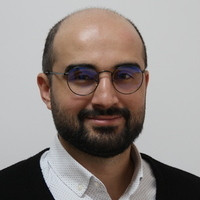




 Web
Web


Editorial Board







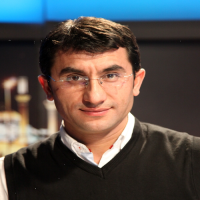



Advisory Board


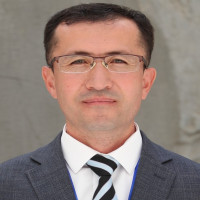

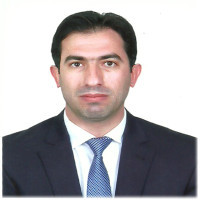






 Web
Web





Foreign Language Editor
Turkish Language Editor

Ethics Editor

Statistical Editor
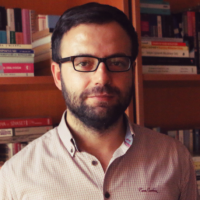
Editorial Secretariat










